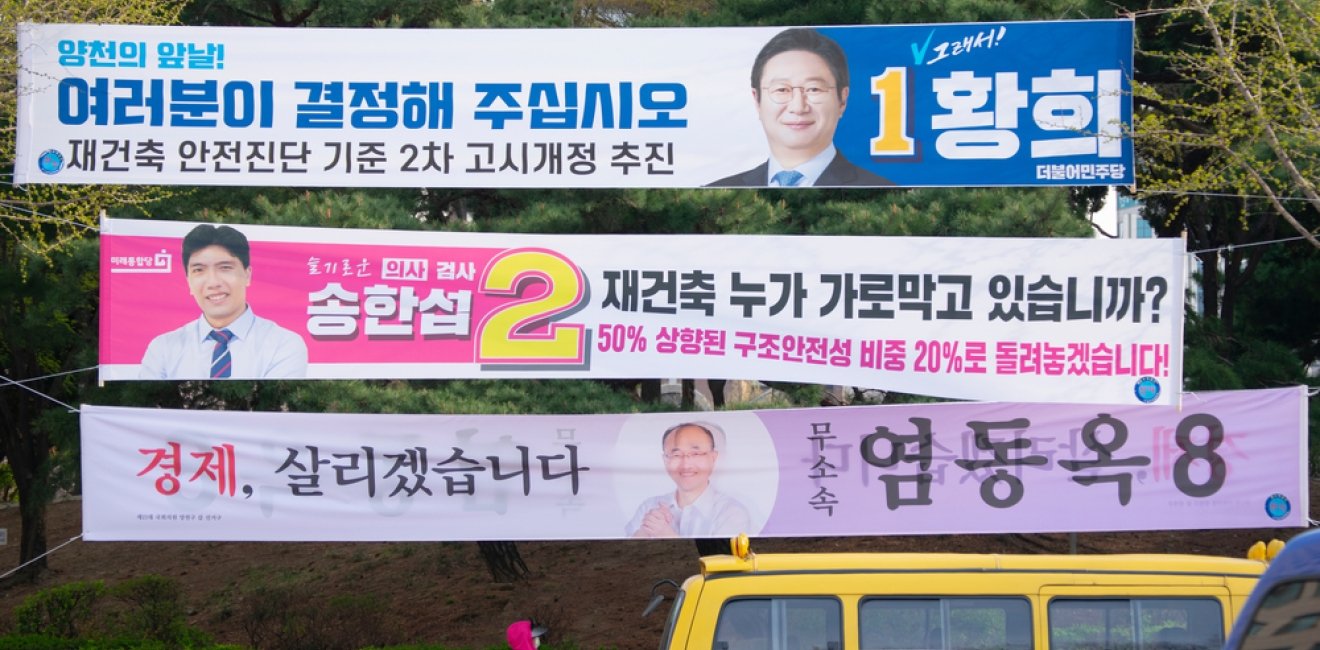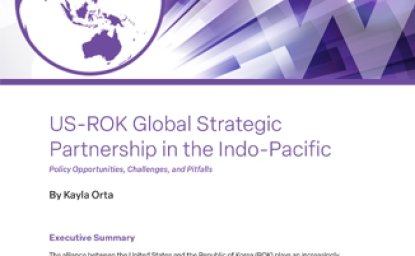On April 10, South Korean citizens headed to the polls at the highest voter turnout in over 30 years to vote for the next National Assembly, the country’s parliamentary body. The outcome of the elections witnessed the waning of the ruling conservative People Power Party’s (PPP) position within the National Assembly, as the party ceded seats to the main opposition, the liberal Democratic Party (DP). In South Korea’s presidential-parliamentary system, the legislative elections determine the 4-year makeup of South Korea’s 300-member, multi-party parliament. Wining over 170 seats in total, the DP expanded its pre-existing majority control and ensured the party’s continued seat of influence within South Korea’s legislative system for the years to come.
Historically, South Korean presidents—limited constitutionally to a single 5-year term—leverage legislative elections as an opportunity to flip seats in favor of the ruling party and presidential political agendas. This week’s election results, however, will likely dampen the ruling PPP’s legislative power and, by extension, could have far-reaching implications for incumbent President Yoon Suk-yeol’s foreign and domestic policy.
Today, South Korean President Yoon continues to battle with low approval ratings domestically, despite his widely applauded international achievements for expanding South Korea’s diplomatic engagements and industry-to-industry partnerships abroad. Now faced with the increased difficulty of a weakened PPP vis-à-vis the DP within the National Assembly, President Yoon could be in the challenging position of a “lame duck” administration—A status with the potential to stand for the remainder of his three years in office.
Moving forward, it will be increasingly challenging for the ruling PPP to pass legislative policy domestically and may place President Yoon’s pro-foreign policy agendas, such as the historical US-Korea-Japan trilateral partnership, at risk of further criticism from the opposition party. While it is unlikely that South Korea will disengage from the successful trilateral platforms, the Yoon administration may have to contend with increased pressure to show tangible gains at home alongside its foreign policy initiatives.
Overall, the 2024 National Assembly elections may have served as an implicit verdict by public opinion of the Korean government’s domestic policies seen as unsuccessful by the opposition. Strong voter turnout, coupled with the election outcomes in favor of the opposition party, indicates public frustration over the increased cut-throat polarization within Korea’s political landscape and continued issues areas, including political corruption scandals, hikes in food and energy prices, and the prolonged student medical crisis.
While an unofficial verdict on domestic policy, the potential for South Korea’s presidential policies to achieve overarching successes in the next few years remains high if considering two key strategies.
First, as South Korea aims to expand its foreign policy reach within the Indo-Pacific and beyond, the Korean government is most likely to continue to proactively push bilateral and multilateral foreign policies. As such, overcoming the perceived struggle to balance outward-focused foreign policy agendas alongside domestic initiatives will play a central role in the Yoon administration’s ability to market diplomatic successes as domestic wins. With President Yoon's aim to pursue high-stake international engagement abroad, it will be paramount that his administration conveys at home the importance of bringing the foreign to the local and vice versa.
Second, the necessity of bipartisanship on critical domestic issues is unlikely to be avoidable in the pursuit of South Korean government’s top-down policy agendas. As the National Assembly election results prove, the future of South Korea’s policy feasibility—both domestic and foreign-driven—will rest on the (currently fraught) relationship between the Yoon administration and the National Assembly. With the DP’s win falling short of the two-third super majority, there is room for the possibility of cross-aisle negotiations and alignment of middle-ground policies between the two leading parties.
Looking to the years to come, bipartisanship and policy rebalancing between domestic and international agendas may be a necessity for the Yoon administration’s development of implementable domestic policy and for the continued growth of Korea’s expanded diplomatic activities on the international stage.








